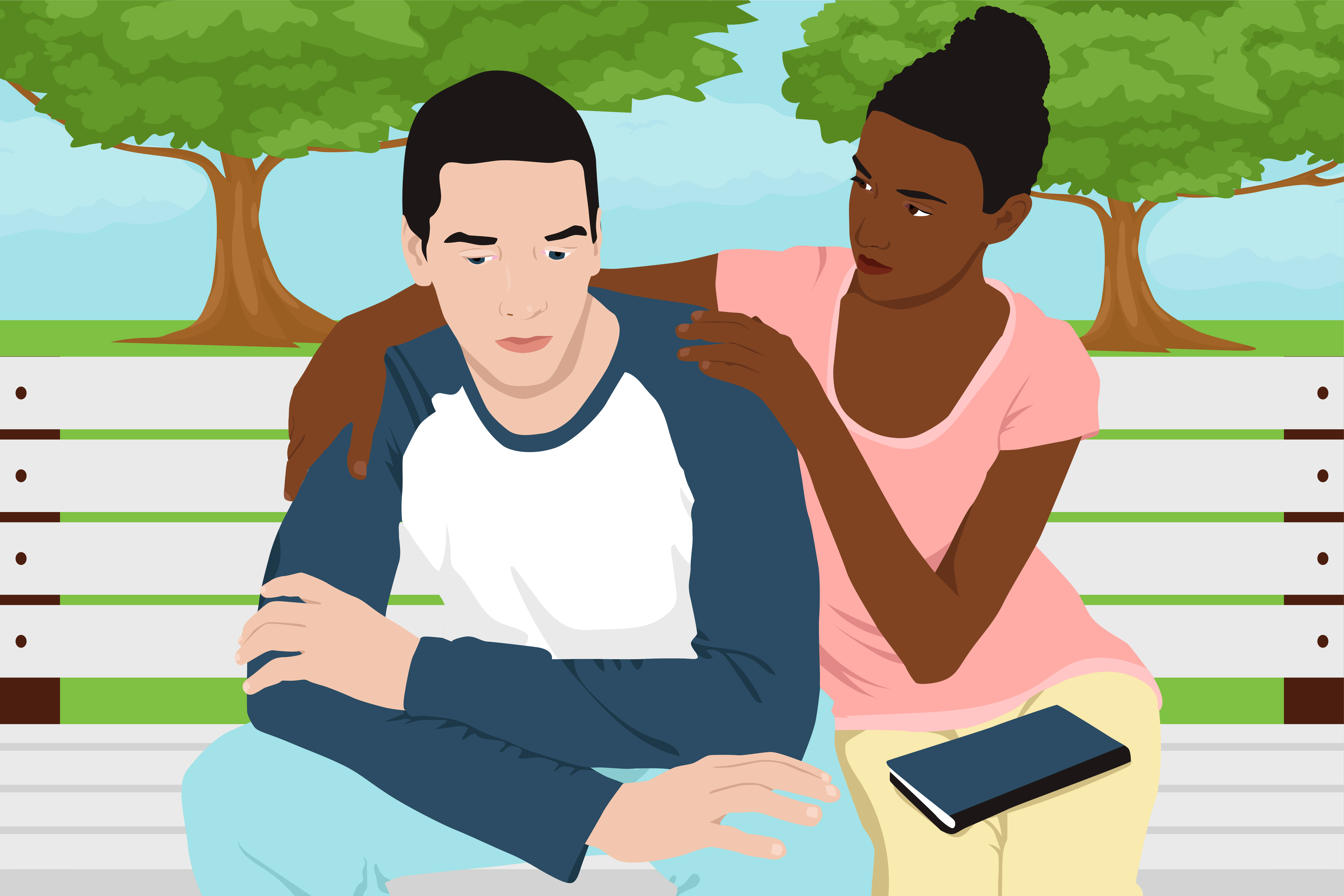
Teenagers and youth nationwide are in the midst of both a global pandemic and civil rights movement, which can possibly endanger their mental health. In general, teens sustain more psychological injuries than physical injuries. We experience failure, rejection, and loneliness more than we experience breaking our bones. Yet there are still many people who don't value or see the importance of mental health as equally important as physical health. While teens may appear to be more open to seeking out professional care than older generations, various public stigmas and self-stigmas about mental health still lead us to talk to our closest friends about our stressors and anxiety instead. Oftentimes, I am that close friend for my peers.
During my senior year of high school, my friend shared a huge milestone with me. He told me he was gay. I was the first person he told. We knew this year was going to be memorable; after all, we were seniors. My friend began brainstorming ways to share his sexuality with his parents and it led to him feeling a constant sadness. All he could think about was the negative outcomes and responses his parents could provide.
I consistently shared possible positive outcomes, but he always negated them. Soon, the majority of our conversations were about his sadness, fear of being targeted, and lack of confidence. So I encouraged him to do more fun activities with me, such as attending parties, watching movies, and roller skating. As we filled our schedules, I noticed he began to stop talking about his sadness. Then one day I noticed a cutting mark on his arm. He told me he had to cut himself because he felt worthless inside whenever he was alone. I responded with the best tool I could think of: I told him that every time he was alone and feeling that way, he needed to call me.
As weeks went by, he stopped working at his job and speaking to me entirely. Eventually, when he reached back out, I expressed that he should get a therapist. He did find a therapist to speak to, but the therapist was not helpful. So, he confided in me about his suicide attempts. His stories scared me and encouraged me to make sure he felt loved. I decided to throw him a party to show how much he was loved and constantly shared stories of famous celebrities that have been able to manage and better control their depression. My friend eventually discovered a therapist that worked well for him and came out of the closet to his aunt after several sessions.
Many scenarios similar to my story happen every day amongst youth. While I didn't seek out support or help from my parents while trying to be there for my friend, there are a lot of things that parents can do to help their teen navigate these weighty relationships.
Help Your Teen Build a Mental First Aid Kit
Each situation is different and not all stories end safely like my friend's, as suicide is the second leading cause of death for people between the ages of 10 and 34. If you know your teen is trying to assist their friends through tough times, introduce them to the idea of a mental first aid kit. Once they fill their own tool kit, they can help their friends do the same.
Tool 1: The National Suicide Prevention Lifeline—1-800-273-8255. This is the most important tool that I should have utilized.
Tool 2: A sentimental item or gift that will encourage and inspire them.
Tool 3: A calming tool such as essential oils, herbal teas, or soothing sounds.
Tool 4: An exercise routine. Exercise is scientifically proven to boost your natural feel-good hormones known as dopamine.
Tool 5: A journal is the fifth tool because it is a healthy way for your teen or their friends to express themselves, instead of a harmful action like cutting.
Tool 6: A handy list of people that your teen can reach out to and are important to your family. These should be people that your teen feels comfortable confiding in and could possibly be a clergy member at your place of worship, a family therapist, a teacher, neighbor, or relative.
Once your teen has a tool kit set up for themselves, they will be able to help their friends set up theirs as well. Remind your teen that they should not ignore how they are feeling. Let them know that they can come to you if they don't know how to navigate the situation. If they bottle up their emotions, even those that hit while helping their friends in crisis, they can explode like a volcano.
Understand These Friendship Dynamics
Parents can encourage their teens to maintain a good mental health strategy by understanding the dynamic between most teenagers, their peers, and adults today. Teens do not always seek guidance from an adult to help their friends, but instead, they suggest that their friends seek out help. So parents might need to be active listeners and stay on alert for ways to assist their teens through this type of friend counseling. By listening non-judgmentally, teens will not become stressed and, instead, will be more likely to be open to a candid conversation. We begin to listen to parents and understand our parents once we feel comfortable and safe to have such dialogues. Most importantly, parents should advise and encourage their children to pursue professional advice and guidance.
Dasia Bandy is an 18-year-old military child. She recently graduated from Grassfield High School’s STEM Academy and plans to attend college in the fall. Bandy is passionate about creating an environment for leaders to emerge and the fight for mental health equality. She’s determined to make a difference.
Read more Teen Talk columns here.

